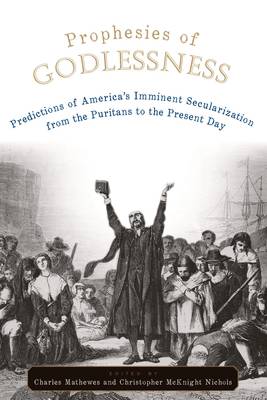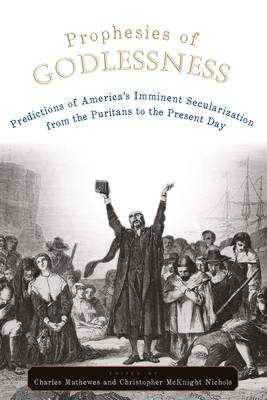
Bedankt voor het vertrouwen het afgelopen jaar! Om jou te bedanken bieden we GRATIS verzending (in België) aan op alles gedurende de hele maand januari.
- Afhalen na 1 uur in een winkel met voorraad
- In januari gratis thuislevering in België
- Ruim aanbod met 7 miljoen producten
Bedankt voor het vertrouwen het afgelopen jaar! Om jou te bedanken bieden we GRATIS verzending (in België) aan op alles gedurende de hele maand januari.
- Afhalen na 1 uur in een winkel met voorraad
- In januari gratis thuislevering in België
- Ruim aanbod met 7 miljoen producten
Zoeken
Prophesies of Godlessness
Predictions of America's Imminent Secularization, from the Puritans to the Present Day
Charles T Mathewes, Christopher Mcknight Nichols
Paperback
€ 39,45
+ 78 punten
Uitvoering
Omschrijving
Prophesies of Godlessness explains patterns in how Americans, from the Puritans to the present, have imagined and disseminated prophesies for and against "godlessness." The book identifies and analyzes surprising continuities among those prophesies throughout American history and among thinkers of surprisingly diverse political and religious views.
Specificaties
Betrokkenen
- Auteur(s):
- Uitgeverij:
Inhoud
- Aantal bladzijden:
- 264
Eigenschappen
- Productcode (EAN):
- 9780195342543
- Verschijningsdatum:
- 16/10/2008
- Uitvoering:
- Paperback
- Afmetingen:
- 231 mm x 150 mm
- Gewicht:
- 388 g

Alleen bij Standaard Boekhandel
+ 78 punten op je klantenkaart van Standaard Boekhandel
Beoordelingen
We publiceren alleen reviews die voldoen aan de voorwaarden voor reviews. Bekijk onze voorwaarden voor reviews.









